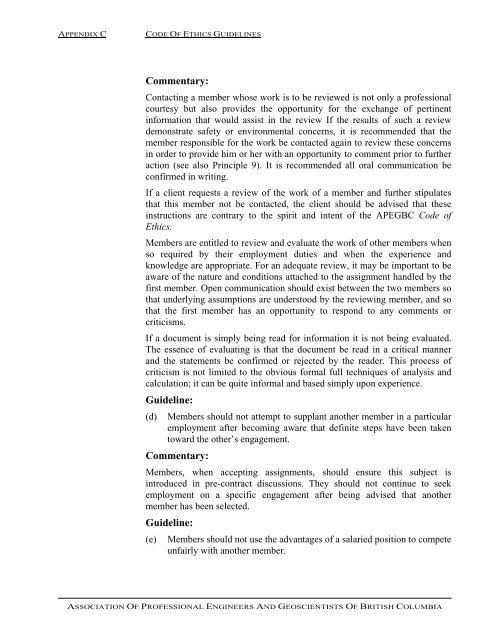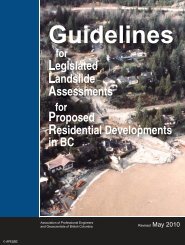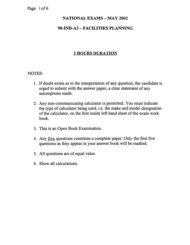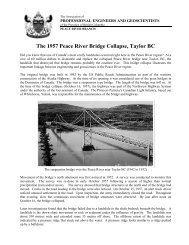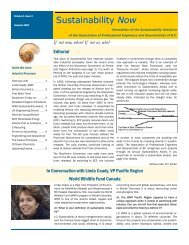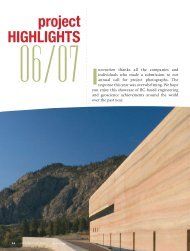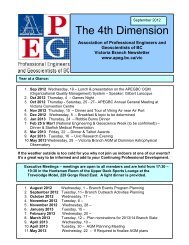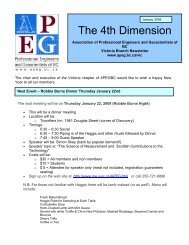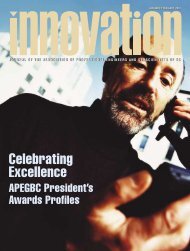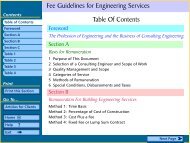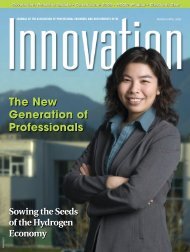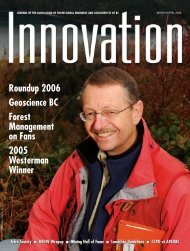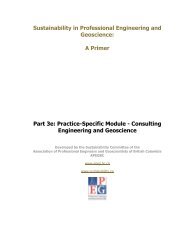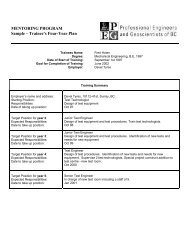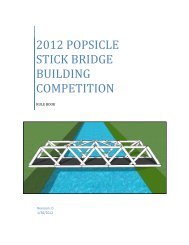Code of Ethics Guidelines - APEGBC
Code of Ethics Guidelines - APEGBC
Code of Ethics Guidelines - APEGBC
You also want an ePaper? Increase the reach of your titles
YUMPU automatically turns print PDFs into web optimized ePapers that Google loves.
APPENDIX C CODE OF ETHICS GUIDELINES<br />
Commentary:<br />
Contacting a member whose work is to be reviewed is not only a pr<strong>of</strong>essional<br />
courtesy but also provides the opportunity for the exchange <strong>of</strong> pertinent<br />
information that would assist in the review If the results <strong>of</strong> such a review<br />
demonstrate safety or environmental concerns, it is recommended that the<br />
member responsible for the work be contacted again to review these concerns<br />
in order to provide him or her with an opportunity to comment prior to further<br />
action (see also Principle 9). It is recommended all oral communication be<br />
confirmed in writing.<br />
If a client requests a review <strong>of</strong> the work <strong>of</strong> a member and further stipulates<br />
that this member not be contacted, the client should be advised that these<br />
instructions are contrary to the spirit and intent <strong>of</strong> the <strong>APEGBC</strong> <strong>Code</strong> <strong>of</strong><br />
<strong>Ethics</strong>.<br />
Members are entitled to review and evaluate the work <strong>of</strong> other members when<br />
so required by their employment duties and when the experience and<br />
knowledge are appropriate. For an adequate review, it may be important to be<br />
aware <strong>of</strong> the nature and conditions attached to the assignment handled by the<br />
first member. Open communication should exist between the two members so<br />
that underlying assumptions are understood by the reviewing member, and so<br />
that the first member has an opportunity to respond to any comments or<br />
criticisms.<br />
If a document is simply being read for information it is not being evaluated.<br />
The essence <strong>of</strong> evaluating is that the document be read in a critical manner<br />
and the statements be confirmed or rejected by the reader. This process <strong>of</strong><br />
criticism is not limited to the obvious formal full techniques <strong>of</strong> analysis and<br />
calculation; it can be quite informal and based simply upon experience.<br />
Guideline:<br />
(d) Members should not attempt to supplant another member in a particular<br />
employment after becoming aware that definite steps have been taken<br />
toward the other’s engagement.<br />
Commentary:<br />
Members, when accepting assignments, should ensure this subject is<br />
introduced in pre-contract discussions. They should not continue to seek<br />
employment on a specific engagement after being advised that another<br />
member has been selected.<br />
Guideline:<br />
(e) Members should not use the advantages <strong>of</strong> a salaried position to compete<br />
unfairly with another member.<br />
ASSOCIATION OF PROFESSIONAL ENGINEERS AND GEOSCIENTISTS OF BRITISH COLUMBIA


